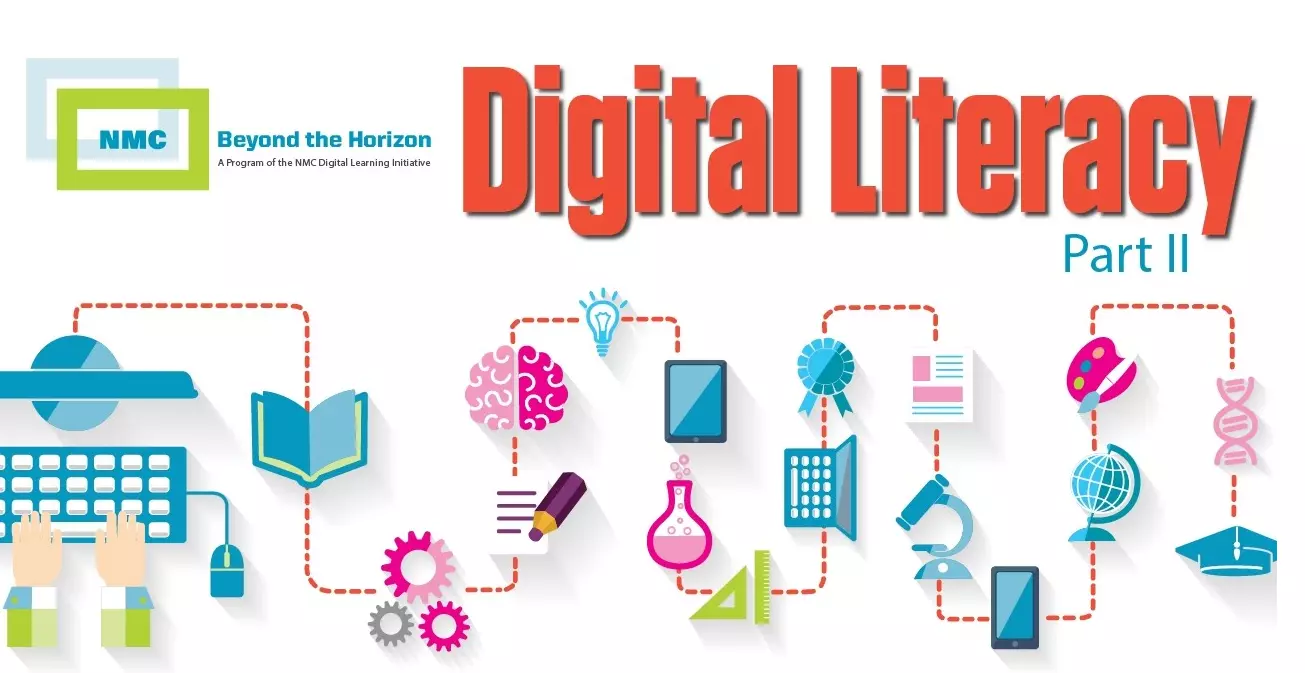Digital Literacy and Digital Skills

Digital Literacy
Digital literacy is the ability to use digital technologies, communication tools, and networks to find, evaluate, create, and share information. It is the set of skills required to effectively use digital devices, software applications, and online resources in various contexts, including work, education, and personal life.
Digital literacy includes a range of abilities, such as understanding how to use digital devices, navigating the internet, evaluating online information for accuracy and credibility, communicating effectively through digital channels, creating and sharing digital content, and managing digital identities and privacy.
Digital literacy is important in today's digital age because it enables individuals to participate fully in the digital society, access information and services, and communicate with others. Digital literacy is also essential for students to succeed in their education and for workers to be competitive in the job market.
What are Digital Skills?
Digital skills refer to the abilities and knowledge required to effectively use digital technologies for communication, work, and personal purposes. One needs to possess one or multiple of the following digital skills to survive in an increasingly digitized and technology-reliant world.
-
Basic computer skills - including knowledge of operating systems, file management, and internet browsing.
-
Data analysis and visualization - the ability to analyze and present data using tools like spreadsheets and charts.
-
Social media - the ability to effectively use social media platforms for communication, marketing, and networking.
-
Cybersecurity - knowledge of online security measures, including the ability to protect against hacking, phishing, and other cyber threats.
-
Cloud computing - knowledge of cloud-based services, such as Dropbox, Google Drive, and Microsoft OneDrive.
-
Digital marketing - the ability to use digital channels to promote products, services, or brands.
-
Coding and programming - the ability to write code and develop software, applications, and websites.
-
Graphic design - the ability to create digital images and visual content using tools like Adobe Photoshop, Illustrator, or InDesign.
-
Project management - the ability to manage and collaborate on projects using digital tools and platforms.
-
E-commerce - knowledge of online marketplaces, payment systems, and customer relationship management.
The skills above may have been a luxury in the past, but they have increasingly become basic requirements for professionals and learners.
Kenya’s DLP (Digital Literacy Program)
In 2016, the then president of Kenya, Hon. Uhuru Kenyatta, launched the digital literacy program (DLP). The program was to be coordinated by the Ministry of ICT. The government started the program with the belief that technology can cause fundamental changes in both basic and higher education by incorporating technology into the learning environment, thus transforming the way teaching and learning take place.
The program has had relative success and failure in considerable measure. The teaching fraternity in Kenya is not adequately equipped to share the technical knowledge with learners. The gap between public and private schools has been evident in the roll out of digital programs in the country, and the DLP has not been any different. The country has a long way to go in ensuring that digital literacy is ingrained in the mainstream education system, so that young people can acquire the digital skills listed above and be more prepared for the future.
